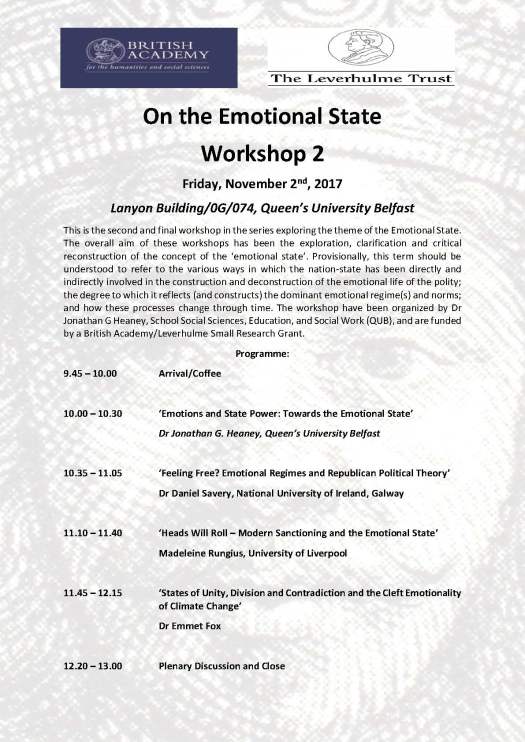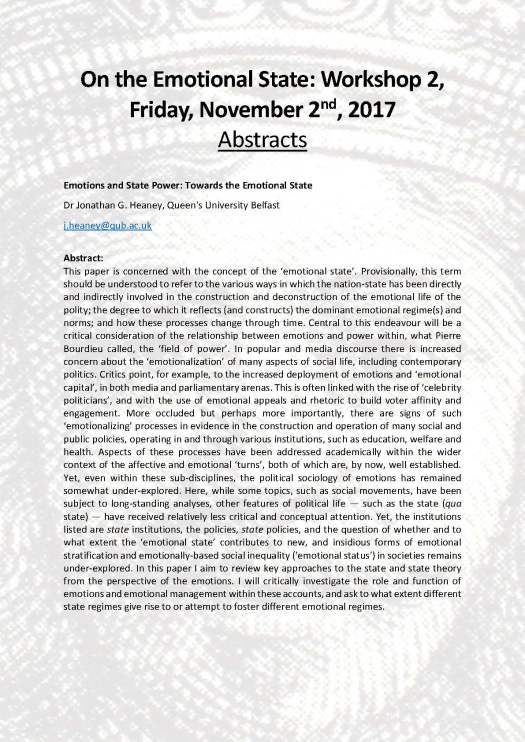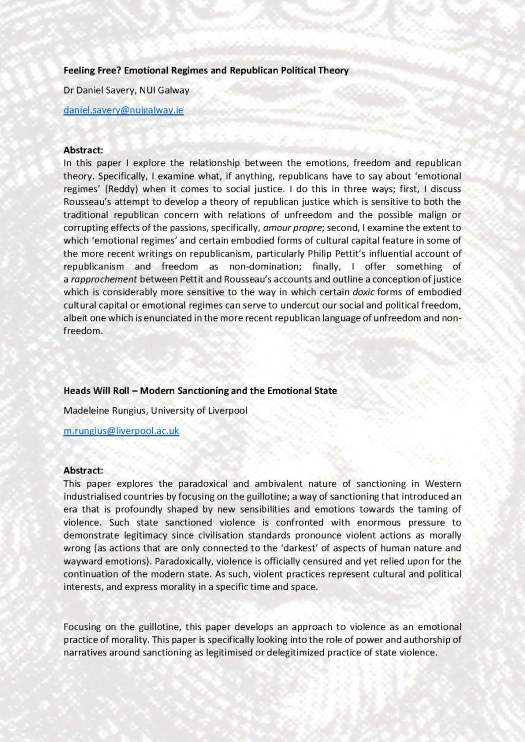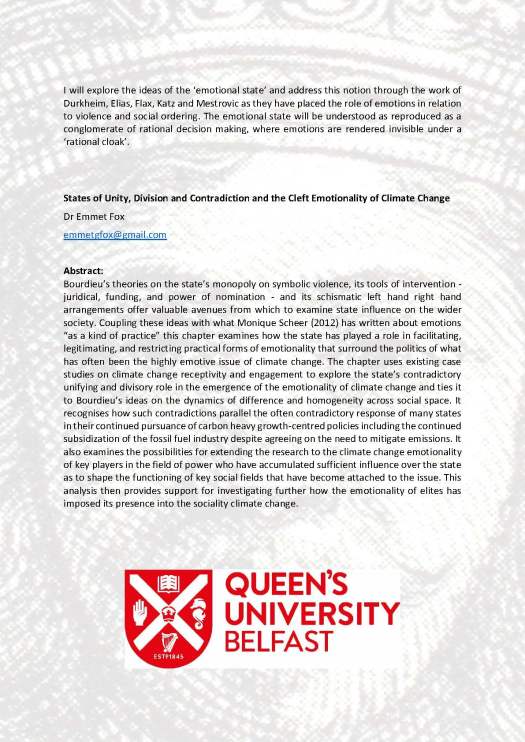
Registration deadline June 1, 2019!
Do you research into emotions or emotional matters? Do you consider certain emotions as part of understanding or explaining your research matter? Or, do you consider sociological theory interesting and relevant? Then consider taking this Autumn course on sociology of emotions.
The course will familiarize students with classical and contemporary perspectives in the sociology of emotions and enable them to critically discuss theoretical assumptions, methodological approaches and empirical results within the sociology of emotions. Moreover, it will contribute to advancing a theoretical framework and methodological approach to a specific research problem in the student’s project. Students may examine the course with (7,5 hec) or without (3,5 hec) a course paper.
The course offers a broad overview of theories and research in the sociology of emotions, covering both structural and situational/interactional approaches to the role of emotions in social life. Part of the course deals with the students research projects, through which there is opportunity to discuss project ideas in relation to the perspectives on emotions presented. There will also be opportunity to discuss various methods employed and ways to apply and develop theory in the analysis of empirical data. The course offers both a broad perspective on the state of the art of the sociology of emotions, as well as in-depth specialization in the chosen area. (For further information see attached course program with all details here!)
Course teachers
Merete Monrad, Associate Professor, Ålborg University, monrad@socsci.aau.dk
Poul Poder, Associate Professor, University of Copenhagen, pp@soc.ku.dk
Åsa Wettergren, Professor, Gøteborg University asa.wettergren@socav.gu.se
Guest teacher: Jack Barbalet, Professor, Australian Catholic University, Australia
Course language: English.
Registration deadline June 1, 2019, to:
or Lene El Mongy, phd@soc.ku.dk










